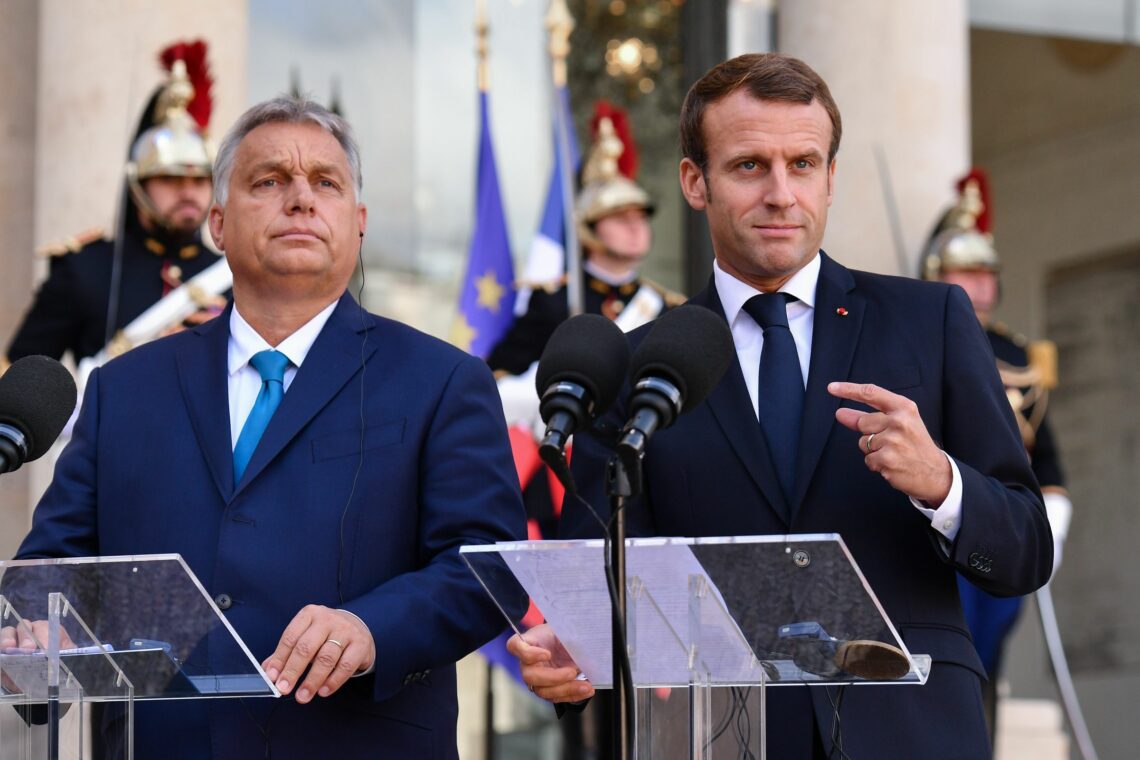Self-righteousness weakens the European success story
With a new report on the rule of law in the EU, leaders and officials within the bloc have again taken to criticizing member states. They should take a look in the mirror, as the EU’s institutions and leading countries often flout the rules themselves.

Last week, the European Commission issued a report on the rule of law in the 27 EU member states. The report’s authors analyzed each country’s judicial system, anti-corruption framework and level of media freedom.
As usual, Poland and Hungary were singled out for violating EU norms. European Commission President Ursula von der Leyen and several member countries issued high praise for the standards set out in the document, while also criticizing some other member countries. Warsaw and Budapest objected to the report’s conclusions.
Some in the bloc want to use the report to penalize noncompliant countries by restricting the flow of EU funds that come their way. That may prove difficult. In July, the European Council – in violation of several EU principles – agreed upon a Covid-19 recovery fund of some 750 billion euros and a budget for the coming three years of 2 trillion euros. To obtain the consent necessary for the plan, the EU will need to reassure Hungary and Poland that their allocation will not be cut.
Weak spots
While weaknesses in judicial independence should be eliminated within each state – according to its own sovereign authority – pointing fingers mainly at the two Central European countries is unfair. Other member states have weak spots, too. Unfortunately, corruption exists on various levels within the EU. While press freedom is guaranteed, governments often influence the media through subsidies or direct ownership. Poland, for its part, has a very good record when it comes to weeding out corruption.
An independent judiciary is important, but it is just as crucial that EU institutions and national governments play by the rules. Brussels’ decision on the budget and Covid-19 recovery spending contravenes some of the bloc’s most fundamental norms. Several member countries have adopted reckless spending habits (against EU regulations), while the European Central Bank plays politics using fiscal and economic tools (against its mandate). The European Court of Justice ruling allowing the ECB to engage in quantitative easing smacked of undue political influence from the EC and member governments. So much for judicial independence.
As Tacitus said: ‘The more corrupt the state, the more numerous the laws’.
Furthermore, the flood of laws and regulations issued by Brussels and (especially) the member states – some of them contradictory – makes compliance close to impossible. Many make little sense and burden the economy with hefty additional costs. Sadly, this phenomenon has become global. As Tacitus said: “The more corrupt the state, the more numerous the laws.”
Although President von der Leyen praised the EU’s high judicial standards at the latest summit in Brussels, there are shortcomings throughout the bloc.
Arrogance
European integration has been a very successful project. We need the European Union. Unfortunately, institutions and especially government bureaucracies tend to exude self-righteousness.
The arrogance shows through frequently – not just in the rule of law report. For example, there is the dispute Greece and Cyprus have with Turkey over maritime exclusive economic zones. While it is understandable for Brussels to support EU member states, Ankara does have several valid arguments. Under the claims made by Greece and Cyprus, Turkey would have little chance to exploit fossil fuels off its coast. So far, Greece has proven unwilling to compromise – a position Brussels supports.
Turkish exploration efforts now require military protection. On both sides, navies are on alert. As if they were issuing some sort of ultimatum, Brussels and several EU member states have called on Ankara to unilaterally call back its navy. Some European capitals are even calling for sanctions – a strategy bound to fail.
Such rhetoric is unhelpful. Resolving the situation requires levelheaded discussion, not threats.
President von der Leyen commented on the situation as follows: “Either the tensions are rising, which is not what we want, or there is a de-escalation and we are moving towards a constructive relationship – this is what we want.”
We can admire the infallibility of her prediction that the conflict will either escalate or de-escalate. But one might detect a certain arrogance in such statements. Does the EU expect “de-escalation” to occur by Turkey calling back its ships without any compensation? A constructive relationship entails understanding the other party’s interests and a willingness to compromise.
